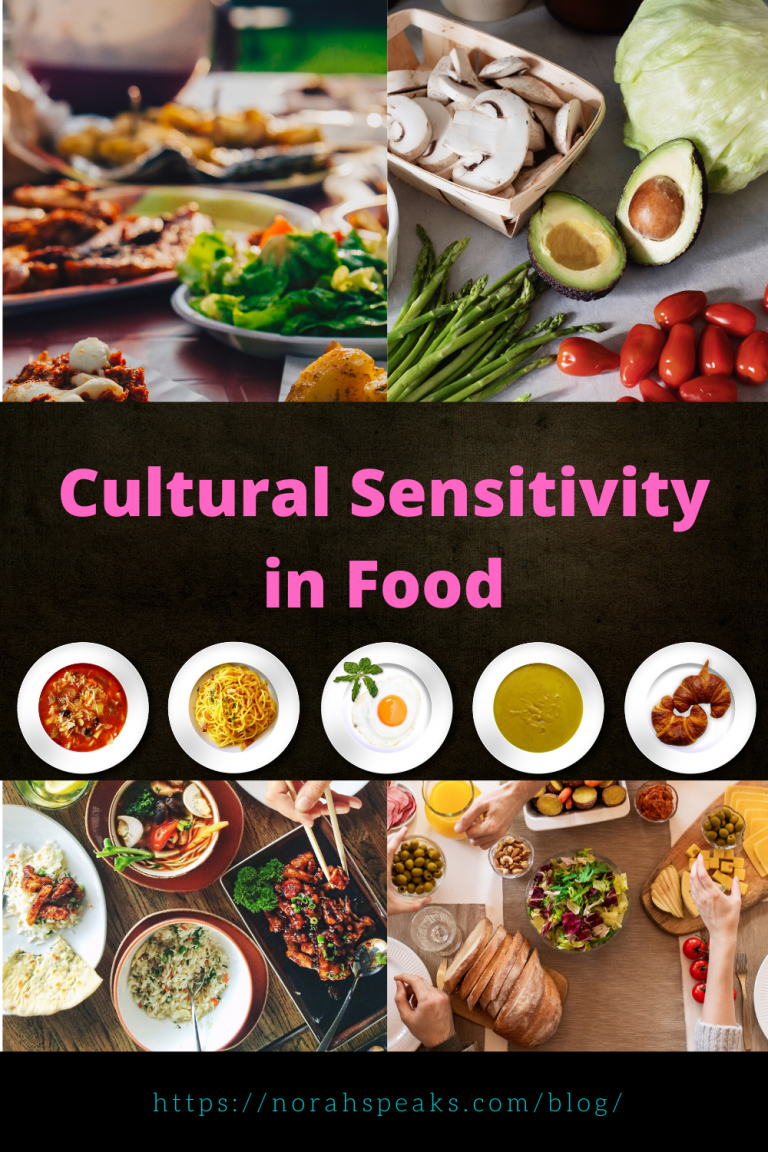
Introduction to Cultural Sensitivity
Last week, I cooked jambalaya for my family. It was delicious! While cooking I thought about the dish’s culture. I know it is a Creole dish, but realized might be a form of cultural appropriation to cook this dish without self-educating about its cultural history! I decided to learn more. The idea of cultural sensitivity in food affects more just at-home cooking.
Cultural Sensitivity for Nutrition
Healthy eating looks different for everyone. Different taste preferences, eating times food availability and food preparation goals. Culture impacts diet. If a registered dietician understands cultural dietary differences, it will go a long way! There is a lack of diverse nutritional advice. Resources provided are not always inclusive, whether that is due to language or cultural relevance. To adapt, create multilingual resources or rely on pictures. This allows for sensitivity to language diversity and literacy levels.
Culturally Sensitive Dieticians
So, what do culturally sensitive dieticians look like?
Two dieticians that promote nutritional equity are Jessica Jones and Wendy Lopez. They are the founders of Food Heaven Made Easy. “Food Heaven is is a multimedia platform founded by two black registered dietitians to help people transform the way they eat and find joy in food through the practice of intuitive eating and body respect.”
In an interview at SELF, Jones “recommends to ask [someone] about what they eat in a typical day, what their food preferences and dislikes are, their financial limitations when it comes to a food budget, where they shop, and their time constraints.”
To read more valuable advice related to culturally sensitive nutrition from other POC dieticians, click here.
Cultural Sensitivity and Appropriation in Food Service
Similarly, there are many issues of cultural appropriation in food.
First of all, some restaurants offer food tied to a certain ethnicity. HOwever, some owners are not of that ethnicity. The food is not authentic to the culture. Lucky Lee’s is an American-Chinese restaurant owned by a Jewish-American couple that market “clean” Chinese food, making the menu inauthentic. It is problematic to sell food from a culture you didn’t grow up in. Therefore, if you serve or cook food from another culture, make sure it is done in a way that respects that culture’s values. Don’t claim it as authentic or apply inaccurate labels to food. For example, naming a dish with similar flavors to Thai food a “Thai” dish. For more tips on promoting cultural respect in cooking, click here.
Cultural Sensitivity and Food Identity
Another reason to attend to culture sensitivity is the link between food and identity. Children have dishes that are part of their cultural identity, but experience discrimination for having “different” food. Children prefer to bring food like pizza to fit in. It’s important to expose children to different foods, to increase acceptance.
So how do we improve this situation? For at-home cooks, here are ways we educate ourselves about the culture of food:
Visit international markets, ethnic restaurants owned by persons from that cultural (especially small businesses!) and/or attend community events.
Research non-traditional recipes.
Ask those around you from different cultures what is important to know, or do research on trusted sites online.
Ask peers about their food experiences and traditions, especially when planning recipes.
LIsten and understand what a person is sharing about their culture. Don’t put words in their mouth or make assumptions based on what you already know.
Ask for clarification about something you may not understand.
Cook with others. My father is Palestinian, and my mom cooked Palestinian meals with my father’s mother.
In summary, when cooking at home, we should explore other cultures through international cuisine as long as we educate ourselves about the culture behind that dish. Maintain culture sensitivity and authenticity. I challenge you to try making a dish from a new culture! It might be a new favorite. The Spruce Eats has tons of recipes to start with, or head over to my cooking instagram, @norahsnoms! Happy cooking!
For more tips about self-education, check out my article on taking control of your learning here.

